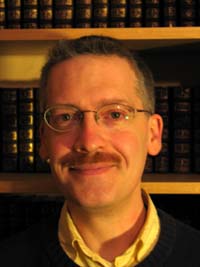The Drew Family Professorship in the Humanities was given jointly by INA and HOWIE DREW. Both graduates of the Class of 1978, Ina and Howie place great emphasis on quality teaching and have a tremendous love for the humanities. Their wish is that this professorship recognize creative and inspirational teaching, as well as excellent scholarship. In addition, they hope to provide the school with the means to retain current outstanding faculty in the humanities.
The humanities programs at Johns Hopkins reflect the characteristic qualities of an intellectual community. The coordinated study of Western civilization through its literature, art, philosophy, and history has been one of the oldest continuing concerns at Hopkins. Because it has remained by design and tradition the smallest of the major American universities and because of the interdisciplinary interests of some of its most distinguished faculty, Hopkins has fostered to a remarkable degree the free exchange between scholars and students across departmental boundaries. The Drew Professorship demonstrates the commitment of Arts and Sciences alumni to the continued excellence of the humanities at Johns Hopkins.
Held by Lawrence M. Principe
 LAWRENCE M. PRINCIPE, A&S 1996 (PhD), arrived at Johns Hopkins University as a graduate student in 1988, became a lecturer of chemistry in 1989, and a member of the professorial faculty in 1997. Holding joint appointments in History of Science and Technology and the Department of Chemistry, he is the inaugural Drew Family Professor of the Humanities. In addition to his Hopkins PhD in the History of Science and Technology, Dr. Principe also holds a doctorate in organic chemistry from Indiana University.
LAWRENCE M. PRINCIPE, A&S 1996 (PhD), arrived at Johns Hopkins University as a graduate student in 1988, became a lecturer of chemistry in 1989, and a member of the professorial faculty in 1997. Holding joint appointments in History of Science and Technology and the Department of Chemistry, he is the inaugural Drew Family Professor of the Humanities. In addition to his Hopkins PhD in the History of Science and Technology, Dr. Principe also holds a doctorate in organic chemistry from Indiana University.
Professor Principe’s research focuses on the history of chemistry in the early modern period (1550-1750), particularly the history and practice of alchemy and its relationship to modern chemistry. He has worked to reveal the substantial scientific contributions of the alchemists, their laboratory methods, their theoretical frameworks, and the key roles they played in the emergence of modern science. Most recently, he has studied how chemistry developed into a recognized profession and organized discipline in the first decades of the 1700s at the Academie Royale des Sciences in Paris, and the popular perceptions of alchemy/chemistry around that time as revealed in art, music, literature and theater.
Professor Principe has been recognized extensively for his brilliant scholarship and creative teaching. In 1999, the Carnegie Foundation chose him as the Maryland Professor of the Year, and in 1998 he received the Templeton Foundation’s award for courses dealing with science and religion. Johns Hopkins has repeatedly recognized his outstanding teaching achievements through numerous awards: the Distinguished Faculty Award, the Excellence in Teaching Award, and the George Owen Teaching Award.
In 2004, Dr. Principe was awarded the first Francis Bacon Prize by the California Institute of Technology, granted to an outstanding scholar whose work has had substantial impact on the history of science, the history of technology, or historically engaged philosophy of science. In 2005 he won the Pfizer Prize for the best book in the history of science published in the preceding three years.
Professor Principe’s publications include Alchemy Tried in the Fire: Starkey, Boyle, and the Fate of Helmontian Chymistry with W.R. Newman (2002), and The Aspiring Adept: Robert Boyle and His Alchemical Quest (1998).
